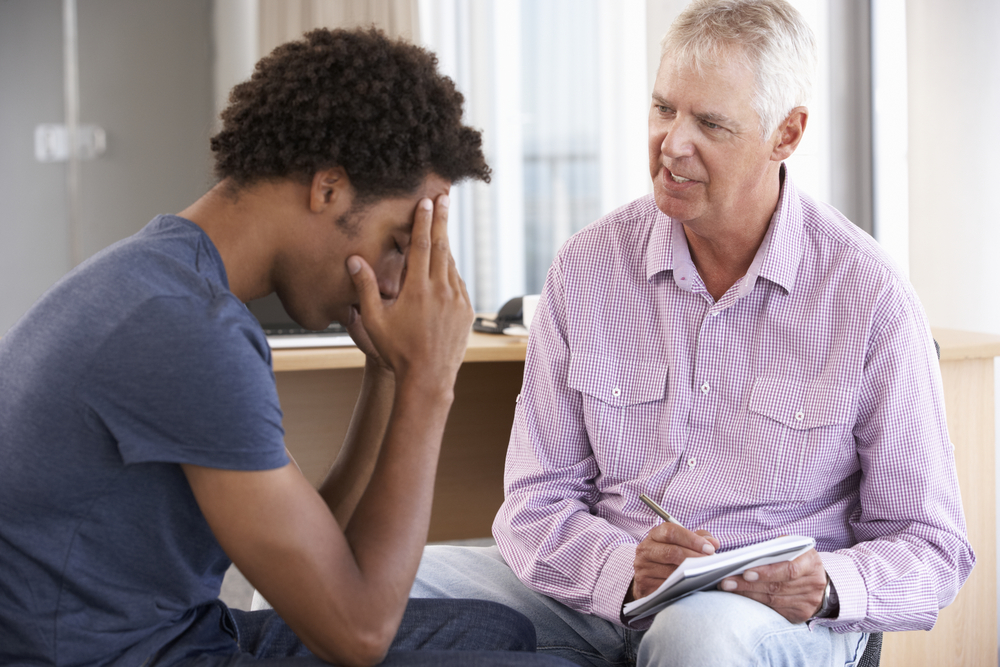Mental health struggles can sometimes reach a breaking point where waiting days or weeks for a regular appointment is not safe. At times like these, what you need is immediate, professional support that helps you stabilize, feel heard, and regain a sense of control.
An emergency therapy session is a short-notice or same-day appointment with a trained mental health professional who focuses on helping you through the crisis you are experiencing right now. It’s not about long-term planning, it’s about keeping you safe and helping you cope in the moment.
In this guide, you’ll learn what situations count as a mental health emergency, how to know if you need one, the fastest ways to access help, what it may cost, and what to expect during the session. The goal is to give you clear, practical steps you can use today if you or someone you know is in urgent need of help.
What Counts as an Emergency Therapy Session
An emergency therapy session is designed to provide immediate mental health intervention when you are facing a situation that cannot wait for a scheduled appointment. This is often arranged within hours, sometimes minutes, depending on urgency.

You might need an emergency therapy session if you are experiencing:
- Thoughts of self-harm or suicide:
This includes any thoughts about ending your life or hurting yourself. Even if you think you “wouldn’t really do it,” these thoughts are serious and should be addressed right away. - Thoughts of harming others:
If you fear you might act violently toward someone else, it is essential to get help immediately to keep everyone safe. - Uncontrollable panic attacks:
These are episodes where your body and mind feel out of control, rapid heartbeat, shortness of breath, dizziness, and overwhelming fear to the point where you can’t calm yourself down. - Severe emotional breakdown:
When sadness, fear, or anger becomes so intense that you cannot manage daily life, make decisions, or care for yourself. - Sudden traumatic events:
This could be a violent incident, natural disaster, the sudden death of someone close, or a serious accident, anything that leaves you shocked, disoriented, or unable to cope. - Extreme anxiety or depression flare-up: If your symptoms spike suddenly and make it impossible to work, sleep, eat, or communicate normally.
The key factor is urgency, these sessions are meant for situations where delaying help could lead to worsening mental health or dangerous behavior.
READ: Science Says Hypnotherapy Works But Only If You Ask This First
How to Know If You Need One
Sometimes it’s hard to tell if your situation is “serious enough” to qualify as a mental health emergency. A good way to decide is to check your symptoms and risk factors.
Ask yourself:
- Do I feel unsafe with my own thoughts?
- Has something just happened that has left me unable to think clearly or function normally?
- Is my anxiety, panic, or depression preventing me from eating, sleeping, or doing basic daily tasks?
- Am I feeling hopeless, like there is no way forward?
- Do I feel like I might hurt someone else?
If you answer “yes” to one or more, it’s safer to treat your situation as urgent. Mental health care professionals would rather you reach out too soon than too late.
How to Access an Emergency Therapy Session Fast
When you realize you need urgent help, the next step is to get connected as quickly as possible. Here are the most effective options:

- Call a crisis hotline: In the U.S., call 988 for the Suicide and Crisis Lifeline, available 24/7 for free. Trained counselors can talk to you immediately, help you calm down, and connect you to local resources.
If you are outside the U.S., search online for your country’s emergency mental health hotline. - Visit a same-day or walk-in mental health clinic: Many cities have urgent care centers for mental health where you can walk in without an appointment. You may be seen by a therapist, counselor, or psychiatrist on the same day.
- Contact your therapist’s emergency line: If you already have a therapist, check their voicemail, website, or therapy agreement for an after-hours number. Many therapists arrange backup coverage when they are unavailable.
- Use online therapy platforms with urgent options: Websites like BetterHelp, Talkspace, or 7 Cups sometimes provide same-day or within-hours sessions. This can be especially helpful if you live in a rural area or can’t leave home.
- Go to the emergency room: If you believe you may harm yourself or someone else, or if you feel completely unable to stay safe, go to the nearest ER. They can assess your condition and connect you to mental health specialists.
Acting quickly is important even 30 minutes can make a difference in how you feel.
READ: Affordable Couples Therapy Exists But Here’s What Most People Miss When Looking for It
Cost and Insurance Considerations
The cost of an emergency therapy session varies widely, but knowing your options can help reduce stress about payment.

- Crisis hotlines are free and available to everyone.
- Community mental health centers often offer reduced rates based on your income or even free crisis intervention.
- Private therapists may charge higher rates for urgent or after-hours sessions, but you can always ask about payment plans.
- Health insurance may cover part or all of the cost for urgent mental health visits contact your provider to confirm coverage.
- If you do not have insurance, some clinics and online platforms offer sliding-scale pricing.
If you’re in crisis, cost should not stop you from seeking help. Many services will work with you to make sure you get the care you need immediately.
READ: What Happens When Faith Meets Therapy: Inside Christian Marriage Counseling
What to Expect During the Session
An emergency therapy session is usually focused on crisis stabilization rather than deep, long-term work. Here’s what typically happens:
- Rapid assessment: The therapist will ask you to describe what is happening right now, what led up to it, and how you are feeling physically and emotionally.
- Safety planning: Together, you will discuss ways to keep you safe during and after the session. This could include removing harmful items, calling a friend, or arranging a safe place to stay.
- Coping strategies: The therapist may teach you quick, practical techniques such as grounding exercises, breathing methods, or thought reframing to reduce emotional intensity.
- Next steps: You may be referred to ongoing therapy, support groups, medication evaluation, or community resources to ensure continued support.
The goal is to leave the session feeling more stable, less overwhelmed, and with a clear plan for what comes next. Mental health emergencies are just as real and urgent as physical health emergencies. If you are in crisis, it is always better to reach out right away rather than wait to see if things improve on their own.
Help is available at all times, day or night and there are professionals who want to support you without judgment. By taking action quickly, you give yourself the best chance to recover safely and regain emotional balance. You do not have to go through it alone. Reaching out could be the first and most important step toward feeling better.


